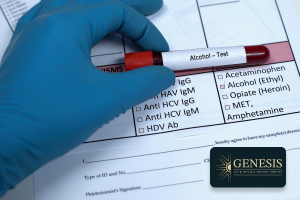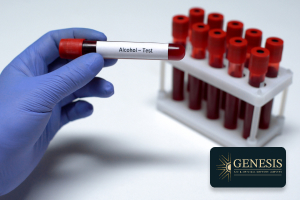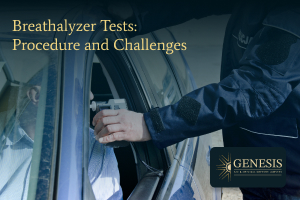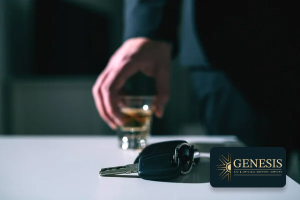
In Arizona, driving under the influence (DUI) is a severe offense, and charges are often accompanied by strict testing methods. When police suspect someone of DUI, they use specific tests to measure the driver's impairment. These tests check for the driver's Blood Alcohol Concentration (BAC) and their ability to perform certain tasks. Understanding these tests is crucial for anyone facing DUI charges. At Genesis DUI & Criminal Defense Lawyers, we understand that a DUI arrest can be incredibly stressful. Law enforcement officers often use a preliminary breath test, blood test, chemical test, or DUI urine test to support their charges.
While you should obey the instructions of the police officer, remember to exercise your right to remain silent. Then, reach out to us for help contesting the results of any DUI test. Each type of test has its own procedures and potential issues. Knowing how these tests work and their legal implications can help drivers make informed decisions. It's also essential for building a defense in DUI cases.
Learn more below, and contact us for a case consultation.
In Arizona, police officers use various methods to test for DUI. These methods aim to determine whether a driver is under the influence of alcohol or drugs. The most common tests are field sobriety tests and chemical tests. Each test administered by a law enforcement officer has specific guidelines that officers must follow.
Chemical tests determine the amount of alcohol or drugs in a person's system. These include breathalyzer tests, blood tests, and sometimes urine tests. Field sobriety tests, on the other hand, assess a driver's physical and cognitive abilities. Understanding these tests can help drivers know what to expect if they are stopped for suspected DUI.

BAC tests are a key component in DUI investigations. They measure the amount of alcohol in a person's bloodstream. In Arizona, a BAC of 0.08% or higher is legally considered impaired driving. The results of these tests play a major role in DUI cases.
Blood tests are often regarded as the most accurate method for measuring BAC. They involve taking a blood sample and analyzing it for alcohol content. These tests can identify even trace amounts of alcohol in the bloodstream. However, the accuracy can be affected by how the sample is collected, stored, and analyzed.
It's important to ensure that blood tests follow proper procedures. Any errors in the process can affect the test's reliability. Defense attorneys often scrutinize these tests for any potential mistakes or irregularities.

Breathalyzer tests are commonly used during DUI stops. They measure the alcohol concentration in a driver's breath. The test requires exhaling into a device that calculates BAC. It's a quick way to assess impairment, but it's not without its challenges.
Breathalyzer tests must be administered properly to be accurate. Factors like the device's calibration, the officer's training, and the driver's medical conditions can affect the results. Defense attorneys often question the validity of these tests in court.
Urine tests are less common but still used in some DUI cases. They detect the presence of alcohol or drugs in a person's urine. These tests can be useful when blood or breath tests are not available or appropriate. However, they are generally considered less reliable than blood tests.
Urine tests have a longer detection window for substances. But, this can also make it harder to determine the exact level of impairment at the time of driving. These tests are often subject to legal challenges due to their potential inaccuracies.

Field sobriety tests are physical and cognitive tasks that officers use to assess impairment. These tests include the walk-and-turn, one-leg stand, and horizontal gaze nystagmus test. They aim to evaluate a driver's balance, coordination, and ability to follow instructions.
While field sobriety tests are a standard procedure, their reliability can be questioned. Factors like the driver's physical condition, nervousness, and the testing environment can affect the results. Defense attorneys often challenge the accuracy of these tests in court.
Refusing to take DUI tests in Arizona can have legal consequences. Under Arizona's implied consent law, drivers automatically agree to BAC testing when they get their driver's license. Refusing a test can lead to immediate license suspension and other penalties.
The legal consequences of test refusal can be severe. They include a one-year license suspension for a first refusal and increased penalties for subsequent refusals. This refusal can also be used as evidence in a DUI case, potentially complicating the defense.
The results of DUI tests are central to DUI charges and defense strategies. A high BAC level can lead to more severe charges. However, if the tests have issues, they can be challenged in court.

Challenging the accuracy of DUI test results is a common defense strategy. This involves questioning the methods and conditions of the tests. Defense attorneys look for errors in the testing procedure, equipment malfunctions, or other factors that could affect accuracy.
A successful challenge can lead to the exclusion of test results from evidence. This can significantly impact the prosecution's case. It's important to have a knowledgeable attorney who can effectively scrutinize these tests.
DUI test results can significantly influence the plea bargaining process in DUI cases. When the evidence is strong, prosecutors might offer a plea deal, potentially reducing the severity of the charges and penalties. A skilled attorney can negotiate using the test results, especially if they show lower BAC levels or if there are issues with how the tests were conducted. Leveraging these results is key to achieving a more favorable outcome for the defendant.
The strength of the DUI test results often dictates the plea bargaining strategy. If the results are borderline or questionable, an attorney might argue for a lesser charge, like reckless driving, instead of DUI. Conversely, if the BAC is significantly over the legal limit, the focus may shift to minimizing penalties rather than disputing the charge. The goal of plea bargaining is always to reduce the impact of the charge on the client's life and future.
The results of DUI tests play a critical role in determining sentencing in extreme DUI cases. Higher BAC levels usually result in stricter penalties, including longer jail sentences, higher fines, and extended periods of license suspension. Sentencing can also include mandatory participation in DUI education programs or community service. The severity of these penalties often correlates directly with the BAC level indicated by the DUI test results.
However, when the DUI test results are questionable, this opens a window for defense strategies. An attorney might challenge the accuracy of the test results, arguing for reduced sentences or alternative forms of punishment. Questionable results can lead to negotiations for lighter penalties, like reduced fines or shorter probation periods. The aim is to present a case that leverages any uncertainties in the test results to benefit the defendant.
Expert witnesses are invaluable in contesting aggravated DUI test results. Their expertise in forensic toxicology or the mechanics of DUI testing equipment can provide critical insights into the validity of the test results. They can identify flaws in the testing procedure, equipment calibration, or even the handling of the test samples. This expertise can cast doubt on the reliability of the evidence against the defendant.
The statements of an expert witness can be a significant factor in a DUI case. Their ability to explain complex scientific principles in understandable terms can help the judge or jury see the issues with the test results. When an expert witness challenges the accuracy of the DUI tests, it can lead to the results being deemed inadmissible or less credible, which may impact the outcome of the case. In many situations, the involvement of an expert witness is the key to a successful defense strategy.
Arizona has specific legal standards and protocols for DUI testing. These standards ensure that tests are conducted fairly and accurately. They cover everything from the calibration of breathalyzer devices to training officers conducting the tests.
Adhering to these standards is crucial for the validity of the test results. The results can be challenged in court if the standards are not met. An attorney can examine whether all legal protocols were followed in the testing process.

Facing DUI charges in Arizona can be overwhelming. Genesis DUI and Criminal Defense Lawyers are here to help. We comprehend the intricacies of DUI cases and are committed to defending your rights.
We will thoroughly analyze the evidence, including test results, to build a strong defense. We are dedicated to achieving the best possible outcome for your case. Don't face DUI charges alone. Trust Genesis DUI and Criminal Defense Lawyers to provide expert legal representation. Contact us today for a consultation. Let us provide you with the strong defense you deserve.
Search our site
Meet the
attorneys
Our Offices





"*" indicates required fields